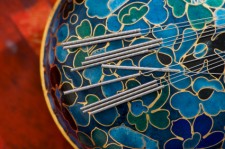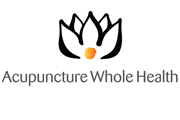FAQ
 What is Acupuncture?
What is Acupuncture?
Acupuncture is one treatment modality of Chinese medicine. Once an acupuncturist completes an initial intake and formulates a treatment diagnosis acupuncture points (acupoints) are then selected for treatment. Acupoint selection is done on an individual basis and can change from one treatment to the next. By needling acupoints, an acupuncturist is communicating with the energy of a patient and in this way is stimulating natural balance and healing.
Do acupuncture needles hurt?
Most people barely feel a thing when needles are inserted. Some people feel a slight pinch, and others ask “Is it in yet?” The reason acupuncture needles don’t give the painful sensation you might expect is because they’re very, very thin in comparison to the hypodermic needles used to give injections. Hypodermic needles are necessarily hollow so that the shot can be injected. They also have a very blunt point (actually a wedge shape) in comparison to an acupuncture needle. Forty acupuncture needles can fit into the tip of one standard 18 gauge hypodermic needle.
There are certain sensations associated with the therapeutic effects of acupuncture, which are known as de qi (pronounced “day-chee”). These may include slight cramping, heaviness, distention, tingling or electric sensation traveling along a meridian. If any discomfort is experienced, it is usually mild.
Is acupuncture safe?
Acupuncture is very safe. The average liability coverage for an acupuncturist is about $600 per year, while primary care physicians pay an average of $12,000 per year. That’s a 20:1 difference. While this may not translate into exactly a 20 to 1 difference in safety, a visit to an acupuncturist is at least as safe as a visit to your doctor, if not safer.
Acupuncture needles are extremely safe, because they are pre-sterilized, individually packaged, and disposable. Every practitioner gets extensive training in anatomy so as to avoid accidentally inserting a needle in a place that can cause damage.
Know the qualifications and educational background of your acupuncturist. Make sure they hold a graduate degree in acupuncture from an accredited college and that they are licensed in the state where you will be receiving treatment. Many states now require that practitioners complete national board certification with the National Certification Commission for Acupuncture and Oriental Medicine (www.nccaom.org).
Do I have to believe in it for it to work? Does acupuncture always work?
Acupuncture and herbs work whether you believe in them or not. Good results are seen in the majority of cases. When all other treatment methods have failed, this indicates a systematic imbalance – exactly what acupuncture and herbs excel at treating.
How often would I need to come in for treatment?
Typically acupuncture treatments are given once a week. If the condition is acute and painful, treatments may be given 2-3 times per week until the condition starts to come under control. The exact duration of treatment depends on the condition, your basic level of health, and how well you respond to acupuncture.
Generally, acute conditions may only need a couple of treatments where-as more chronic conditions may be resolved with a course of 6-12 treatments. Conditions that are particularly severe or degenerative may need several treatments before improvement and may require many treatments over time. Initially, treatments are scheduled as often as three times a week or as little as twice a month.
What should I do before, during and after a treatment?
It is advised not to receive acupuncture on an empty stomach, immediately after consuming a large meal, if very fatigued, or emotionally upset. Wear loose, comfortable clothing. During treatment it is best to relax and to ask your practitioner any questions you may have. It is recommended to avoid physical activity up to 6 hours after receiving a treatment.
How does acupuncture work?
In Chinese medical theory, acupuncture works by balancing the body’s Qi. Qi can be described as a form of bioenergy that runs along 12 major meridians. If Qi gets blocked, it shows up as an imbalance or illness. Basically, if you have a health condition, some part of your body’s system is out of whack. Chinese medical theory allows us to diagnose the imbalance… and balance it.
In Western medical theory, acupuncture appears to work by stimulating parts of the brain. It also stimulates the body to release natural biomolecules such as neurotransmitters, vasodilators, and hormones. The exact mechanisms which brings this about are unknown, but the effects are measurable.
A good example of this is the use of acupuncture to induce labor. One of the first things that Oriental medical students learn is that there are a few points that are absolutely forbidden to use with pregnant women. These points cause the release of oxytocin, which is the hormone that naturally induces labor. Studies have shown that using acupuncture to induce labor reduces the active (painful) phase of labor by an average of 3.6 hours.
Does insurance cover acupuncture?
Some insurers cover acupuncture. You can usually find out by calling the number on your insurance card. We can give you a statement that provides all the information you need to submit to your insurance company for reimbursement.

